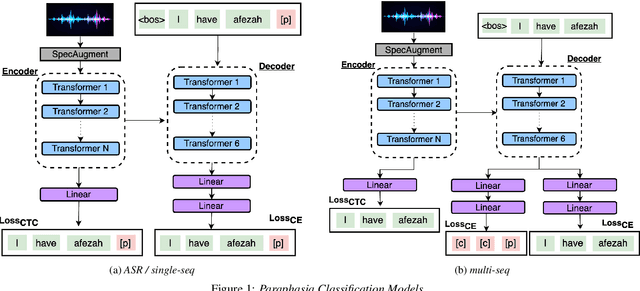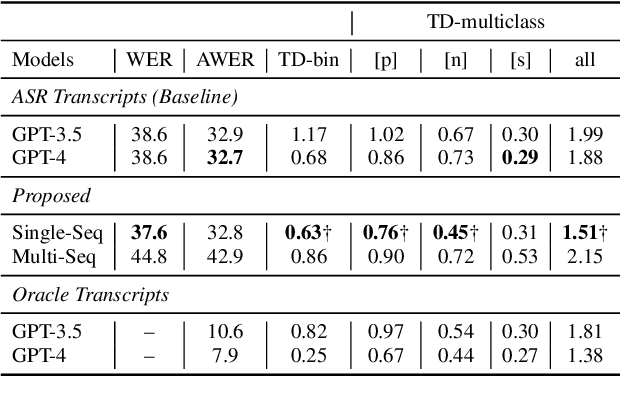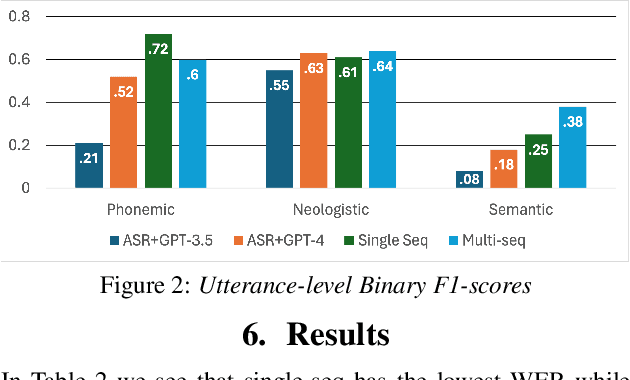Beyond Binary: Multiclass Paraphasia Detection with Generative Pretrained Transformers and End-to-End Models
Paper and Code
Jul 16, 2024



Aphasia is a language disorder that can lead to speech errors known as paraphasias, which involve the misuse, substitution, or invention of words. Automatic paraphasia detection can help those with Aphasia by facilitating clinical assessment and treatment planning options. However, most automatic paraphasia detection works have focused solely on binary detection, which involves recognizing only the presence or absence of a paraphasia. Multiclass paraphasia detection represents an unexplored area of research that focuses on identifying multiple types of paraphasias and where they occur in a given speech segment. We present novel approaches that use a generative pretrained transformer (GPT) to identify paraphasias from transcripts as well as two end-to-end approaches that focus on modeling both automatic speech recognition (ASR) and paraphasia classification as multiple sequences vs. a single sequence. We demonstrate that a single sequence model outperforms GPT baselines for multiclass paraphasia detection.
 Add to Chrome
Add to Chrome Add to Firefox
Add to Firefox Add to Edge
Add to Edge